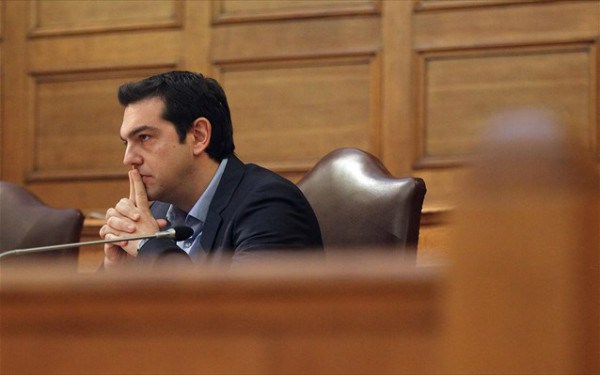by Mahmoud Kassem, TheNational
Greek banks are expected to open today after a three-week holiday as the government of Alexis Tspiras prepares for another parliamentary vote to secure a bailout.
Greece has been flirting with bankruptcy since January when Greek voters elevated Mr Tsipras, the leader of the left-wing Syriza party, to the post of prime minister with a mandate to put an end to years of austerity imposed by euro-zone creditors and the IMF.
Banks have been shut since June 29 following a call by the government for a referendum on an austerity for money deal tabled by the country’s creditors. The banks had capped cash withdrawals at €420 (Dh1,670) a week.
The Athens Stock Exchange, which was closed during the month-long confrontation between Greece and its creditors, is expected to reopen, as trading was suspended until the end of the government-decreed bank holiday.
Although the Greek electorate voted overwhelmingly against more austerity in the referendum, Mr Tspiras eventually bowed to creditor demands for more reforms in return for funds in an agreement that resembled the original deal that his government rejected.
Greece is now seeking a third bailout after lawmakers went along with demands for more economic reforms. The European Central Bank approved emergency financing for Greek lenders last Thursday.
Last Friday, the European Union provided a €7 billion bridge loan to keep Greece afloat during negotiations on a three-year rescue programme worth as much as €86bn. The loan will help to cover a €3.5bn payment to the ECB that is due today.
The Greek government still faces a parliamentary vote on Wednesday to pass a list of new legislation – demands of euro-zone creditors that includes tax increases on farmers.
Last week’s vote prompted some Syriza party members to rebel, forcing Mr Tsipras to reshuffle his cabinet last Friday.
“What the latest developments do mean is that we most certainly have not heard the end of this saga, as the problem is highly unlikely to go away,” said Angus Campbell, a senior foreign exchange analyst. “Greece’s debt mountain is so high that without any sort of concessions from the creditors, it is impossible to grow their way out of it.”
Mr Tsipras announced the closure of banks and the stock market on June 27. European finance ministers were pushing for an agreement that will mean more spending cuts and higher taxes for Greeks. Greece’s total debt load exceeds €300bn, equivalent to 175 per cent of GDP.
The country’s debt crisis originated in the 2008 global financial downturn, following which it was revealed that the Greek government deficit was four times the size of what was permitted by euro-zone rules.
Over the years, the Greek government had been overspending on the salaries of public employees, while economic output failed to keep pace with the spending. Greece’s economic troubles reached a peak in 2012 when the European Union and the IMF bailed it out and creditors were forced to write down €100bn of privately held bonds.
Talk of Greece exiting the euro, threatening the single currency bloc, were quashed when Mario Draghi, the ECB’s governor, said he would save the euro at all costs.
Although Germany, Europe’s largest economy, has taken a hard stance on Greece, France and Italy have been more conciliatory.
The French president François Hollande yesterday called for the creation of a euro-zone government and for citizens to renew their faith in the European project, which has been weakened by the Greek crisis.
“What threatens us is not an excess of Europe but its insufficiency,” Mr Hollande wrote in the French weekly newspaper Journal du Dimanche.



















